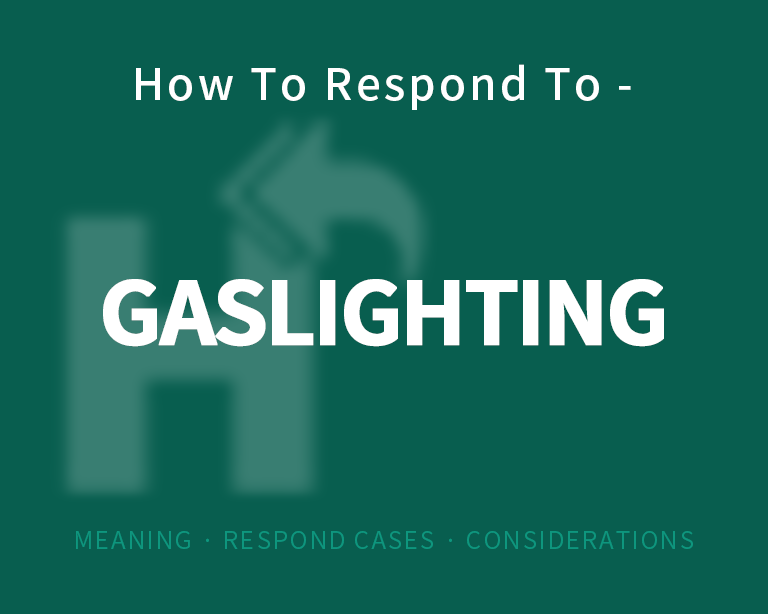The Best Way to Respond to Gaslighting?

Responding to gaslighting is difficult because the technique is meant to make you question your own reality and perception of events. However, it is important to stand up for yourself while also avoiding aggression. The following thoughts on how to identify and respond to gaslighting may help empower you in these situations.
What is Gaslighting in a Conversation
Gaslighting is a form of emotional abuse where the gaslighter makes you doubt your own feelings, instincts, and sanity by denying facts or the memory of events. Some common signs of gaslighting in a conversation are:
- ""That never happened.""
- ""You're overreacting.""
- ""You're too sensitive.""
How to Respond
When responding to gaslighting, it is important to remain calm and confident in your perception of reality. Some tips:
- Do not engage or argue. Calmly state the facts and your experience.
- Use ""I"" statements. Say ""I remember it differently"" or ""I feel differently.""
- Do not seek approval or make excuses. You do not need to convince the gaslighter.
- Leave the interaction if possible. Remove yourself from a toxic situation.
Case Examples
Case 1: Your friend says, ""We never made plans to get dinner tonight. You're mistaken."" You respond: ""I'm pretty sure we agreed to dinner over the phone this morning. My memory seems to differ from yours.""
Case 2: Your boss tells you, ""Your work has been subpar lately. Many people are complaining about your performance."" You respond: ""I'm surprised to hear that as my past reviews have been positive. Can you provide specific examples so I can better understand your feedback?""
Case 3: Your partner says, ""You're too clingy and jealous. I can't be around someone as insecure as you."" You respond: ""Your criticism feels unwarranted. Unless we can have a constructive conversation, I think it's best if we spend some time apart.""
Considerations
Every situation is different, so consider the relationship with the gaslighter and their motivations. Are they open to acknowledging the truth, is their memory compromised, or do they have a personality disorder? Respond with empathy and care when possible. Your safety is most important, however, so get distance if you feel threatened.
Conclusion
Gaslighting can be deeply damaging, but you have the power to stand firm in your own reality. Speaking confidently yet tactfully is critical. Remember that the gaslighter's behavior says more about them, so do not let their manipulation define your worth or perception of the truth. Stay strong and keep actively focused on self-care. You deserve healthy relationships free from manipulation.